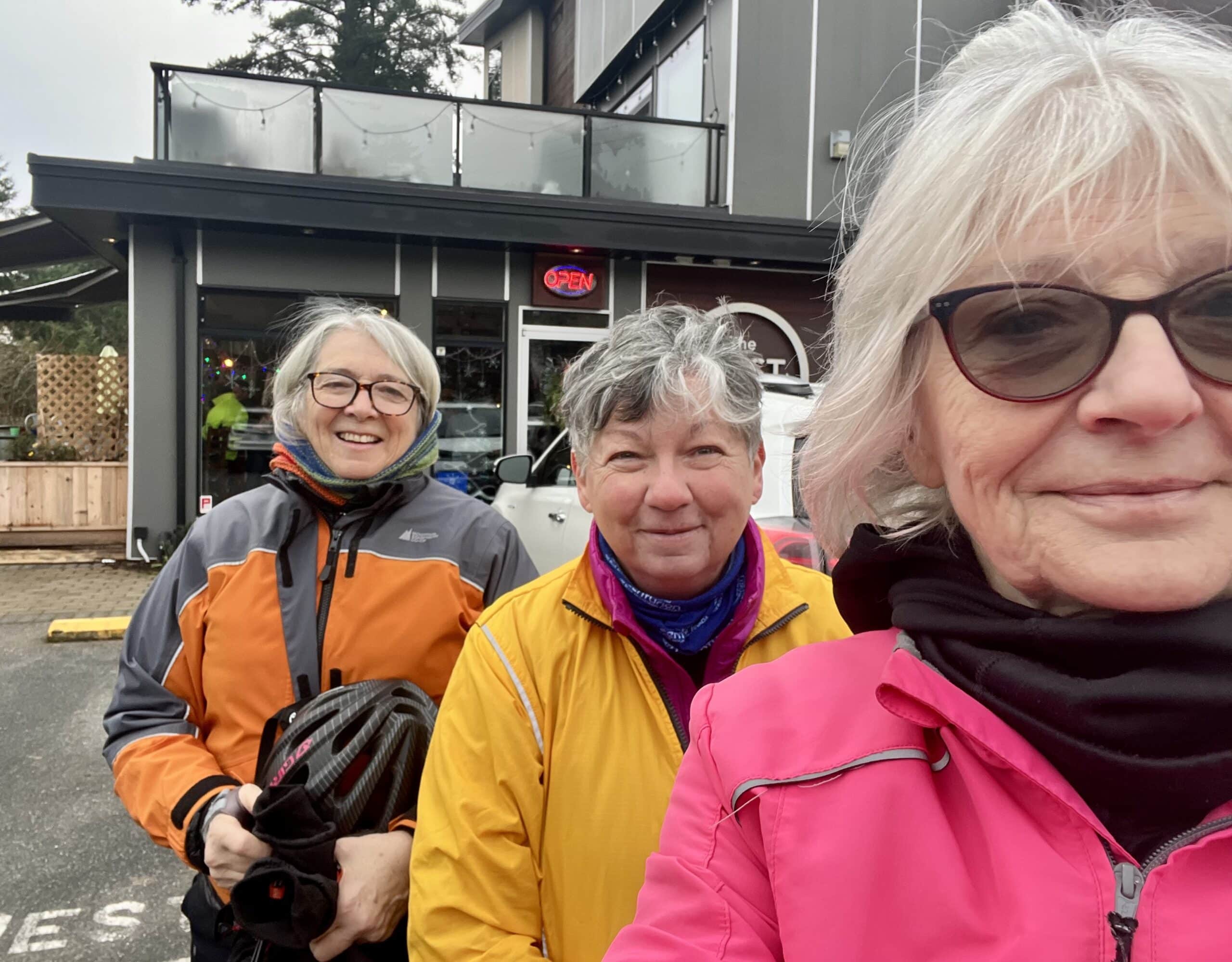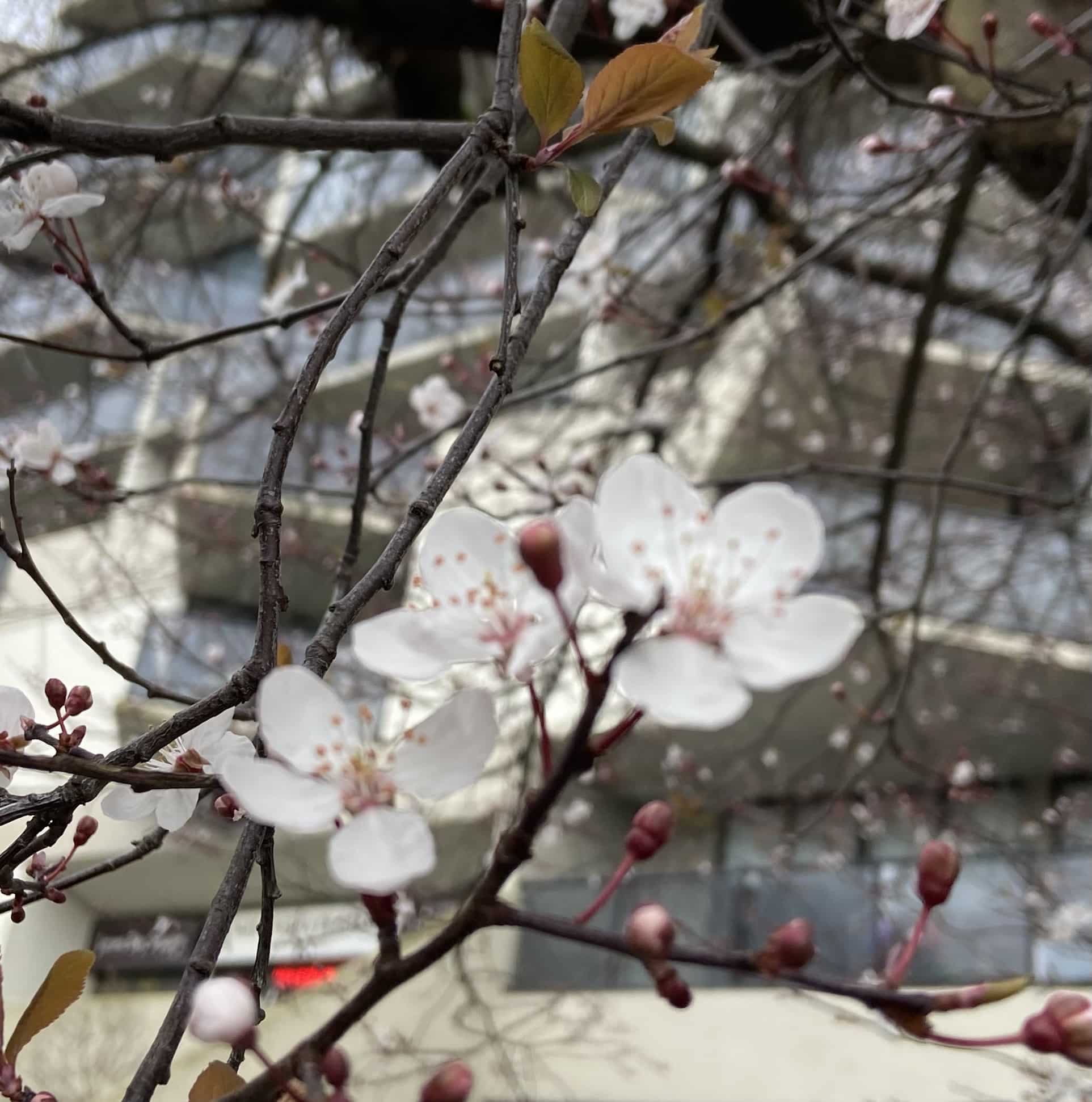I call myself the Recovery Queen. Much and all as I don’t want to have to keep being the Recovery Queen, it’s better than not being the Recovery Queen, if you know what I mean.
What does recovery even mean? That’s up to you. Maybe the reason why I’m so good at it is that I keep changing the goal post to something I can achieve!
Anyway, today, two weeks to the day after my latest heart surgery, I got on my bike and rode 26 km with some of my riding friends from Victoria Grandmothers 4 Africa. We ride bikes and raise money for the Stephen Lewis Foundation. I’ve never met a more inspirational group of women. I went on the Tuesday easy ride, which a lot of us use as a recovery ride after our various “issues.” Hips and knees are always getting fixed. We are, after all, the age of grandmothers. And they are so enthusiastic! “Jane! You’re back!” It’s great to see them.
Then, about an hour ago, I talked to an old neighbour in another city. We usually check in around the New Year and I was glad to see her number pop up. She’s about to have a hip surgery and is anxious and scared (understandably). Her dad died a few years ago. I knew him. We always talk about him. She’s worried about the state of the world. Aren’t we all.
I offered a little unasked for advice. Oops. But once I was off the phone, I thought about what I do to help myself recover. How did I become the Recovery Queen?
Well, first of all there is luck, public health care, and a lot of help. Thanks everyone.
As for what I do myself, the most important thing I think is to help other people. When you are at your lowest, help other people. (Do it when you’re fine too.) There are a million ways to help and billions of people to help. Do something every day. Heck, pick up a piece of litter. Be a helper. It helps other people and it always helps you.
Surround yourself with believers, with positive people, with other helpers. My family is that for me. So are my close friends. So are the VG4A queens I ride with. Having said that, they are also realists. False positivity is often a form of gaslighting. You know where the line is and who your people are. Be with the people who are believers. Believers in what? In themselves, in you, in the GOOD, whatever that is for you.
Have something to look forward to. About six months ago, I decided 2026 would include a camping trip I’ve really wanted to take for a long time. Until this last surgery worked, it was more of a wish than a reality. It gave me something to plan for besides my funeral. It’s kind of a tough trip with lots of logistics. Perfect to keep my mind on something positive. And now it looks like I’m actually going.
Do something. Keep busy. If you can’t walk, do something sedentary. The crossword. Knit. Paint. Colour. Read. Listen to audio books. Join a book club. Start a book club. (Ok, enough about books.) But whatever it is you like to do, do it with intention. Do you love watching “Grey’s Anatomy?” Watch it with gusto. Start reading the Reddits. Check out the fanfic. Type the hashtags in to your favourite social media. Get really into whatever you’re into.
Grow something. A houseplant. Micro greens. A friendship.
Learn something. Whatever it is you want to learn, chances are you can make a start at it for free on YouTube or at the library. Track your progress, as in, write it down. (Oct 1, I could only tie one kind of knot. Nov 16, I’ve mastered four knots and am working on a clove hitch next.) Revel in your accomplishment. When people ask you what’s new, tell them what you are learning. “I’m learning to tie knots.” It may be the start of a great conversation.
Be nice to strangers.
When you wake up, think of something you are looking forward to that day. I look forward to seeing this man in a very fancy old-fashioned tweed suit ride his bike past where I live. There’s a dog named Pip who lives near me. I look forward to seeing him. When you go to bed, think about something good that happened during the day. Maybe the frost made a pretty pattern on the window.
I had a teacher once a few years ago, Patricia Lane, who told us all to find awe every day. It’s a good practice. I do it. I was already doing it, thinking of something good that happened in the day. Often it was something beautiful I saw. Maybe I heard a kid giggling. It’s an easy assignment for me because I’m amazed by things that are growing. Even in the sidewalk cracks. Today, I saw four seals. I saw two eagles. I saw Mount Baker snowy in the distance.
That’s enough for now. Please feel free to add a comment on things you do to help you through these tough times. We’re all recovering from something. You are not alone. And we can all be Recovery Queens.

Easy Riders



